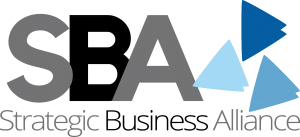Best Accounting Practices That Your Business Need to Have Apr 28, 2022

Benjamin Franklin once famously said, “Beware of little expenses. A small leak will sink a great ship.” Expense management is both an art and science. You’re not only using knowledge to manage your accounts but also leveraging accounting practices to solve business problems.
When it comes down to account for your organisation’s income and expenses, many factors are involved. The stakes are a lot higher as accurate and timely processing is critical to understanding how the business is performing and also being able to service clients properly and pay employees correctly.
Some accounting tips that will make navigating the bookkeeping and accounting process easier include:
1. Choosing a Suitable Basis for your Accounting Practices – Accrual or Cash
Depending on your business requirements and when you want to recognize the revenue and expenses, your company can choose either accrual or cash accounting. In the accrual accounting method, revenue is recorded in the books as soon as the ordered goods or service is dispatched. On the other hand, the cash accounting method only records those transactions where the cash has been received. or paid.
For SME’s cash accounting may work better as you pay GST when you get paid from clients and claim GST on expenses paid. As the business grows beyond a certain revenue threshold, accrual accounting becomes compulsory.
2. Regularly Track your Expense to improve your Accounting Practices
If you are confused as to which expenses should be tracked, it’s always ideal to keep a record of all expense documentation. From minor purchases like stationery or business meetings to big purchases like an item of office furniture, all expenses should be accounted for. Specialist advice becomes important to ascertain which expenses are claimable and which are not.
3. Automate to Streamline Processes and Reduce Stress
Automation of transaction processing, receipting and expense coding significantly reduces processing times and stress. All accounting software has built-in levels of automation that if utilised well can help in streamlining accounting processes.
4. Set your Budget for the Year
Get into the habit of setting a budget at the start of the financial year. That will ensure effective reporting and performance tracking and good visibility on variances from the budget. Budgets are also important for showing future investors in the business that robust accounting practices are followed within the business.
5. Plan your Taxes Ahead of the Deadline
Tax planning should be done two to three months before the financial year-end. It is too late to do effective tax planning after the financial year has ended. Tax planning enables minimising the tax burden on the business and having certainty in knowing how much tax if any will be payable on any profit generated for the financial year. Tax planning is generally done with your tax accountant who does your tax returns.
6. Regularly Reconcile your banks, vendors, and client’s account.
It is best to make it a monthly procedure to reconcile all accounts. Getting receipting, reconciliations and expense coding done regularly ensures nothing is missed or no expense item is forgotten for coding purposes.
7. Establish and Monitor your Internal Control System to see a difference in your Accounting Practices
Having a good control framework for accounting processes is critical to minimise the risk of fraud. So any supplier bank details should be always verified over the phone with the supplier. Any payments from the bank account should be authorised by you or by yourself and another team member.
Document all accounting related processes as process maps. Make sure logins to banks and accounting software are controlled through dual authentication.
Having control measures in place for accounting processes will enable the business to grow seamlessly without experiencing bottlenecks in back-office processing.
Assess your opportunity costs in accounting support processes
Is time that could have gone for your business development and client service now being chewed up by bookkeeping.
What about doing the books at the end of another long day and not getting quality time to spend with family?
How about cost pressures in the business? Can you reduce spending on back-office processing to improve margins?
SBA’s support team provides end to end best accounting services to clients looking to optimise accounting support services, reduce opportunity costs and reduce back-office costs to improve margin.
SBA’s support services deliver a minimum of 50% cost savings to businesses and leverage time difference and resourcing depth to create a cost-effective and efficient accounts support function.
Team SBA works with law firms, accounting firms and businesses in various industry sectors in accounting support functions.
Be it Accounts Payable, Accounts Receivable, payroll processing, management report preparation, bank reconciliations and BAS work paper preparation team SBA has all accounting support work covered.
